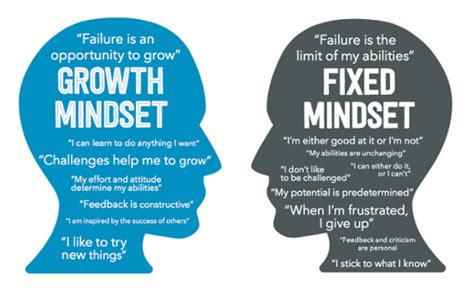The Foundation of Lasting Success
In a world brimming with instant gratification and quick fixes, the pursuit of genuine, long-term progress often feels like an uphill battle. Whether we’re striving for peak physical condition or robust financial health, the underlying challenge remains the same: cultivating a disciplined mindset. This isn’t about rigid self-deprivation; it’s about making conscious choices consistently that align with our deepest aspirations. Both fitness and finance demand patience, foresight, and the ability to resist immediate temptations for greater future rewards.
The journey to success in these pivotal life areas isn’t linear, nor is it paved with dramatic overnight transformations. Instead, it’s a mosaic built brick by brick, day by day, through small, disciplined actions. Understanding how to foster this mental fortitude is the secret sauce for achieving consistent progress and ultimately, a more fulfilling life.

The Symbiotic Relationship: Fitness and Finance Discipline
Surprisingly, the disciplines required for physical fitness and financial prosperity share a striking resemblance. Both demand a clear vision, consistent effort, and the ability to stick to a plan even when motivation wanes. Think about it: waking up early for a workout requires the same self-control as consistently saving a portion of your income. Saying no to an unhealthy snack mirrors the decision to forgo an impulse purchase. The mental muscles you build in one area often strengthen the other.
- Goal Setting: Both require setting clear, measurable, achievable, relevant, and time-bound (SMART) goals.
- Routine Adherence: Sticking to a workout schedule or a budget plan demands consistent daily or weekly habits.
- Delayed Gratification: Sacrificing immediate pleasure (e.g., junk food, frivolous spending) for future benefits (e.g., health, wealth).
- Tracking Progress: Monitoring gym performance or financial statements to stay on track and make adjustments.
Pillars of a Disciplined Mindset
1. Clear Vision and Goal Setting
Before you can cultivate discipline, you need to know what you’re working towards. Define your fitness goals (e.g., run a marathon, gain muscle, lose weight) and financial goals (e.g., save for a down payment, retire by 60, pay off debt). Make these goals specific, compelling, and write them down. This clarity acts as your compass, guiding your daily decisions.
2. Build Unbreakable Habits
Discipline isn’t just about willpower; it’s about automating positive behaviors. Start small. Want to get fit? Commit to a 15-minute walk daily. Want to improve finances? Automate a small transfer to savings each payday. Over time, these small actions compound, transforming into powerful habits that require less conscious effort.

3. Practice Delayed Gratification
This is arguably the cornerstone of discipline in both arenas. It’s the ability to forgo an immediate, smaller reward for a larger, more significant one in the future. Opting for a home-cooked meal over takeout saves money and supports health. Investing instead of spending frees up future capital. Train your brain to appreciate future rewards more than fleeting present pleasures.
4. Embrace Resilience and Adaptability
Setbacks are inevitable. You’ll miss a workout, overspend one month, or face unexpected expenses. A disciplined mindset isn’t about perfection; it’s about resilience. It’s about getting back on track quickly, learning from mistakes, and adapting your strategy without giving up entirely. View failures as data points, not destiny.
Applying Discipline to Your Fitness Journey
A disciplined approach to fitness involves:
- Consistent Training: Sticking to a workout schedule, even on days you don’t feel like it.
- Mindful Nutrition: Making conscious food choices that fuel your body and align with your health goals, rather than succumbing to cravings.
- Adequate Recovery: Prioritizing sleep and rest, recognizing their crucial role in physical progress.
- Tracking and Adjustment: Monitoring your progress (e.g., strength, endurance, body composition) and adjusting your routine as needed.

Applying Discipline to Your Financial Health
Financial discipline translates into:
- Budgeting & Tracking: Knowing where your money goes and allocating it according to your priorities.
- Consistent Saving & Investing: Regularly setting aside money, even small amounts, and allowing compound interest to work its magic.
- Debt Management: Creating and sticking to a plan to reduce and eliminate high-interest debt.
- Frugality & Value: Making purchasing decisions based on long-term value and needs, rather than impulse or fleeting trends.

Maintaining Momentum and Overcoming Obstacles
Discipline isn’t a one-time decision; it’s a continuous practice. To maintain momentum:
- Find Your Why: Reconnect with the deeper reasons behind your goals. What truly motivates you?
- Build a Support System: Surround yourself with people who encourage your disciplined efforts.
- Celebrate Small Wins: Acknowledge your progress, no matter how small, to reinforce positive behaviors.
- Practice Self-Compassion: Don’t beat yourself up over slips. Forgive yourself, learn, and move forward.

Conclusion: The Ultimate Freedom
Cultivating a disciplined mindset for consistent progress in fitness and finance isn’t about restricting your life; it’s about liberating it. It frees you from the whims of impulse, the burden of debt, and the limitations of poor health. By consciously choosing discipline, you empower yourself to build the body, the bank account, and the life you truly desire. Embrace the journey, commit to the process, and watch as consistent, disciplined action transforms your reality.




